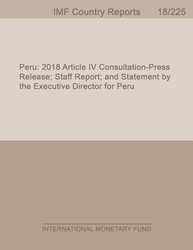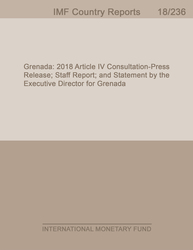
Portugal: 2022 Article IV Consultation-Press Release; Staff Report; and Statement by the Executive Director for Portugal
Portugal: 2022 Article IV Consultation-Press Release; Staff Report; and Statement by the Executive Director for Portugal
READ MORE...
Volume/Issue:
Volume 2022
Issue 203
Publication date: June 2022
ISBN: 9798400211034
$20.00
Add to Cart by clicking price of the language and format you'd like to purchase
Available Languages and Formats
| English |
Prices in red indicate formats that are not yet available but are forthcoming.
Topics covered in this book
This title contains information about the following subjects.
Click on a subject if you would like to see other titles with the same subjects.
Banks and Banking , Inflation , Economics- Macroeconomics , Money and Monetary Policy , Public Finance , International - Economics , portfolio investment data collection system , money market rate , insolvency regime , priority Portugal , asset quality , RRP fund , strengthening capital buffer , Energy prices , Inflation , Fiscal stance , Global
Also of interest
Summary
This 2022 Article IV Consultation presents that after a deeper pandemic-induced recession than the rest of the euro area in 2020, the Portuguese economy gained ground in 2021, and growth strengthened further in 2022:Q1. Policies need to balance short-term urgencies with a smooth transition to private-led growth, rebuilding fiscal space and advancing reforms for stronger growth and a more resilient economy. The 2022 budget remains suitably accommodative, excluding the appropriate unwinding of coronavirus disease 2019 measures. Broad-based measures in response to the energy price shock must be kept temporary and preferably replaced with more targeted measures to mitigate the impact on vulnerable households. Fiscal policy needs to be flexible for further support under severe adverse scenarios or more savings under fiscal over performance. A timely implementation of the National Recovery and Resilience Plan through efficient and transparent planning and budgeting, organization and oversight of the investments and reforms, coupled with reforms to reduce labor market duality and strengthen insolvency regimes would limit scarring, raise living standards, and build a more dynamic economy.
Copyright © 2010 - 2026
Powered by:
AIDC



